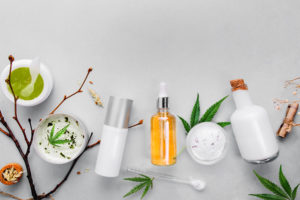 Stroll through any shop or big box store these days, and you’ll likely see a vast array of products that contain hemp. A naturally derived product from the same botanical family as marijuana, hemp is widely misunderstood, and many parents may bristle at the idea of giving their children hemp seed oil, or using any products that contain hemp.
Stroll through any shop or big box store these days, and you’ll likely see a vast array of products that contain hemp. A naturally derived product from the same botanical family as marijuana, hemp is widely misunderstood, and many parents may bristle at the idea of giving their children hemp seed oil, or using any products that contain hemp.
Much of this fear comes from the association of hemp with marijuana, and more recently, CBD. Because the products are often discussed as if they are interchangeable, there’s a perception that using hemp-derived substances on children is akin to giving them marijuana. The simple fact is, though, that this is not true. Hemp is not the same as cannabis, and it’s perfectly safe, and beneficial, for people of all ages to use hemp oil and hemp-derived products.
The Difference Between Hemp and Marijuana
Although hemp and marijuana share similarities, they actually have different chemical makeups. Both are members of the cannabis family, but unlike marijuana, hemp contains less than .3 percent or less of THC (the source of the “high” created by marijuana) by dry weight.
That said, there are other differences between the two plants, and classifying them based solely on their intoxicating effects is misleading and inaccurate. Much like classifying all citrus fruits based on whether they are sweet or sour, and not on the other characteristics they possess, classifying hemp vs. marijuana based entirely on whether it causes intoxication is an oversimplification. For example, hemp has a wide range of industrial and therapeutic uses — and offers a range of health benefits — whereas marijuana is largely limited to recreational and therapeutic benefits, many of which are tied to its ability to create a high.
The bottom line, at least where parents are concerned, is that hemp is not the same as marijuana, and shouldn’t be treated as such. That doesn’t mean, though, that there aren’t some important guidelines for safely using hemp.
How Hemp Benefits Children
These days, hemp, and hemp-derived CBD, can be found in everything from body lotions to snacks. But what should you use, and why?
Hemp oil is often used in food as a dietary supplement for a host of reasons. Typically derived from the hemp seeds using a cold press method (hence the name “hemp seed oil”) the oil is often used as a source of protein, as well as key fatty acids, including omega-3 and omega-6. These fatty acids are important to brain development and to supporting healthy vision, as well as cardiovascular health at all phases of life. Hemp oil is also rich in iron, with a serving providing almost a full daily recommended amount for a toddler. Hemp seed oil is also a good source of fiber, which can help with healthy digestion, and has been successfully used to treat common skin conditions, including eczema and acne.
All of these benefits come without any psychoactive compounds. Because the hemp oil sold for nutritional purposes, or used in body care products, comes from hemp (which naturally contains only trace amounts of THC) and is often refined to remove any impurities, there is no risk of any type of psychoactive reaction. There is no risk that your child will be drawn to use marijuana or other drugs in the future due to the use of hemp products. Serving your child 100 percent raw hemp seed oil products in the recommended dosage (no more than three tablespoons per day) is safe and beneficial.
What About CBD?
Some of the confusion about hemp stems from the explosive popularity of CBD and CBD products. CBD is also derived from hemp, and has a wide range of reported therapeutic benefits, from helping relieve pain and support sleep to supporting relaxation. Like hemp, it’s offered as oils, as well as in candies, body products, and even vape pens. But should it be used with children?
Although there is some evidence of CBD being used with children to manage the symptoms of certain conditions, such as autism, ADHD, and anxiety, doctors caution that CBD isn’t a “silver bullet” cure-all for behavioral disorders. And as of yet, there is no definitive proof that CBD is effective for children. Doctors are concerned that the rapid increase of CBD products to the market have led to quality control issues, including mislabeled doses, excessive amounts of THC, and contaminants in the products that could cause more harm than good.
Still, many doctors do not immediately dismiss CBD for use with children, and encourage parents to discuss options with them before they start using any type of CBD to their kids. As with any product, using caution, and choosing the purest products possible, is the key to safe and effective treatments.


